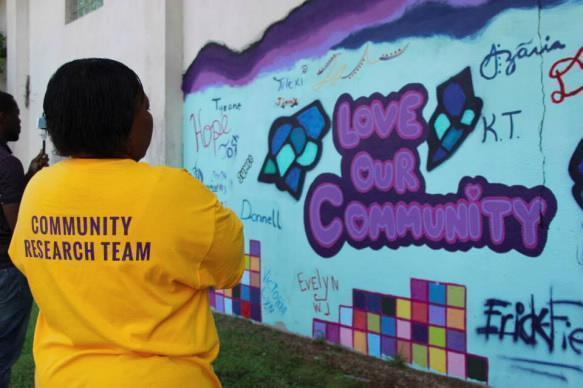Assess Connect Transform In Our Neighborhood: A framework for engaging community partners in community-based participatory research designs
Have you ever wondered what it takes to achieve meaningful, lasting community change? How can you bring together researchers and community partners to work collaboratively to understand community issues and create relevant, long-lasting solutions? These are questions we have asked ourselves over the past decade through our work in the field. Though there are no simple answers to these questions, one step toward that goal is what we call the principle of shared expertise.
The principle of shared expertise requires us to acknowledge that both researchers and community partners have unique skills, experiences, and abilities that are vital to balancing scientific rigor and community authenticity in community-engaged action research. Scientific rigor allows us to have confidence in our ability to most accurately understand community issues, and community authenticity ensures that we are examining the issues that we want to understand in meaningful, solution-driven ways. Building on the long-standing tradition of Community-Based Participatory Research (CBPR), in the paper we introduce an overarching framework for engaging community members in decision-making action and practices surrounding the CBPR research design process.
AR Associate Editor Marina Apgar wrote this about the article: “We are particularly excited about the contribution you make to community based participatory research CBPR. Through this detailed account of the research design phase, you speak to the core issues of quality and validity in AR that are concerned with meaningful engagement across different epistemologies.” As more researchers understand the ‘how’ of engaging communities in the research design process, research teams may face fewer obstacles to launching research that is realistic, legitimate, and rigorous, leading to actionable community change. We invite you to share your ideas and experiences in fostering effective community-researcher partnerships in the comments below.
We invite you to learn more about this experience by reading our article HERE. Free 30-day access is available for this article beginning 19 October.
After you’ve had a chance to read this piece, please share your thoughts, ideas, or experiences with our community in the comments below so we can continue this discussion!
- Making Public Deliberations Inclusive with Mixed Methods AR - October 26, 2020
- Participatory action research with Aboriginal Elders: Ngulluk Koolunga Ngulluk Koort project - October 12, 2020
- Bringing the relational self to ART: Interview with Dr. Yvonne Skipper - October 1, 2020
